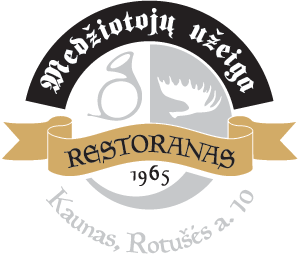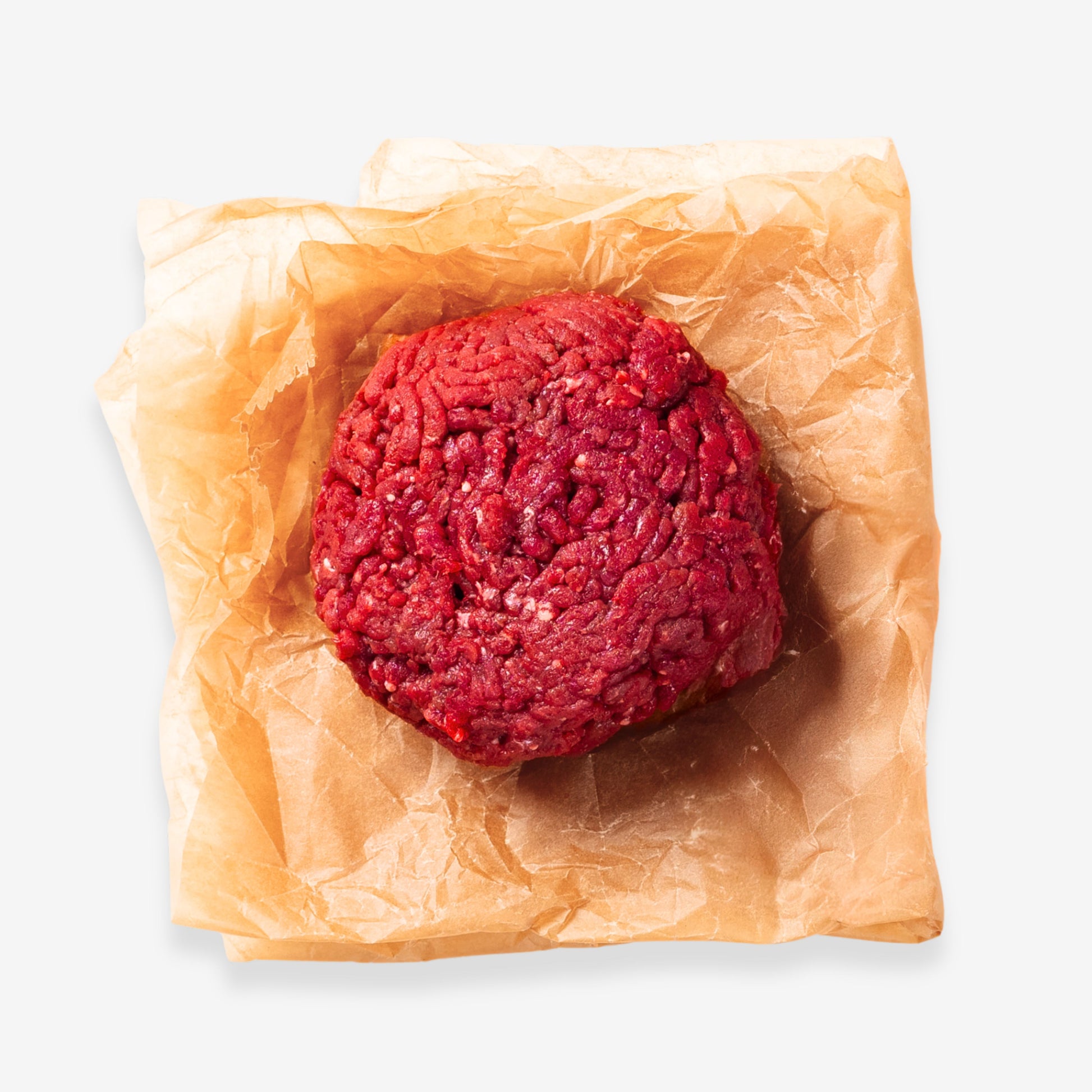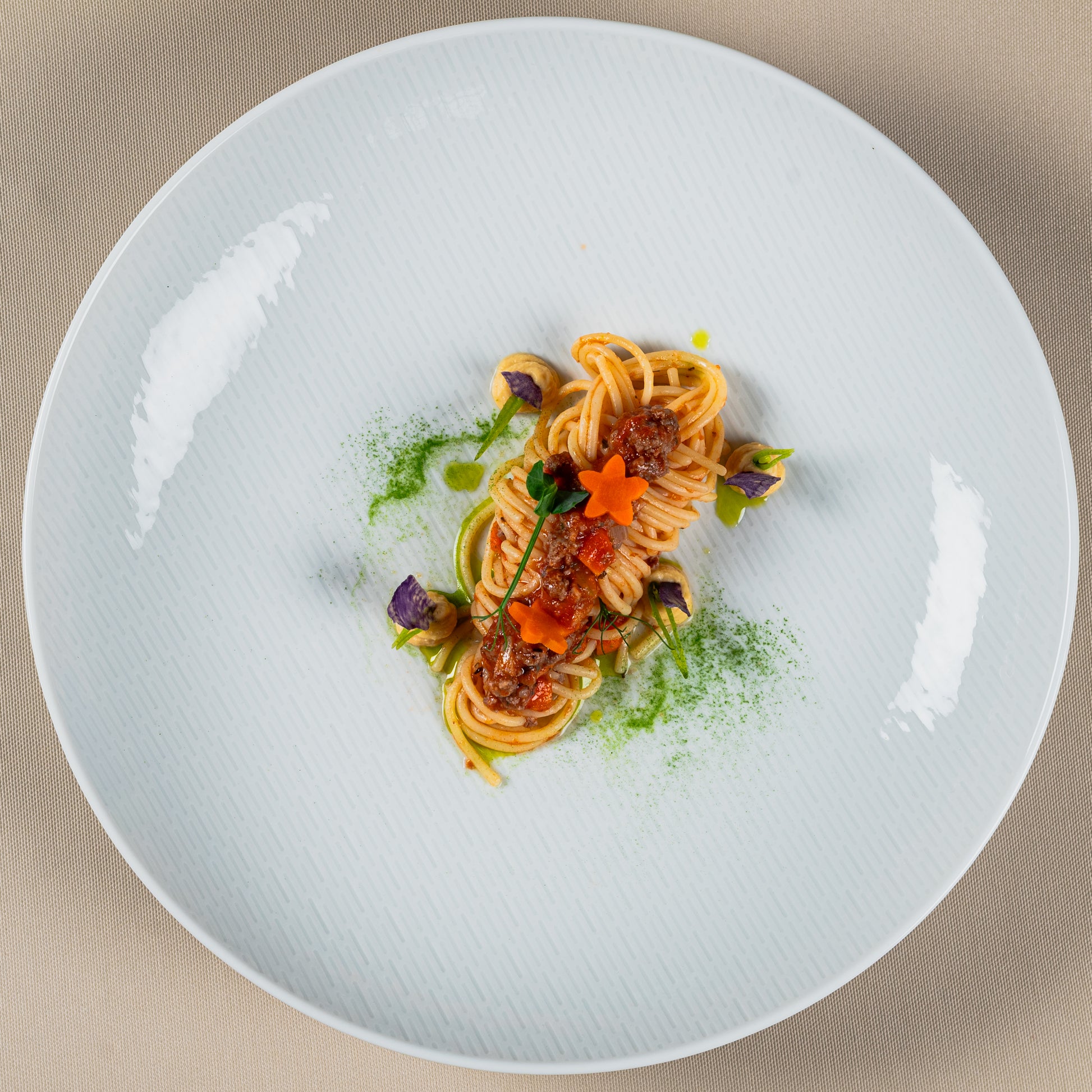Ground moose (1 kg)
Ground moose (1 kg)
Couldn't load pickup availability
- Blast-frozen and vacuum-packed.
- Not frozen – fresh (during hunting season) or thawed, vacuum-packed
- Actual product appearance may vary from the photo.
- Minimum order amount - 30 EUR.
- Delivered via DPD Fresh (1–2 business days). Weekdays only (no shipping on weekends).
- Pick-up available at Inovacijų street 1, Biruliškės, 54469 Kaunas district.



Ground Moose
Ground moose is made from a variety of muscle groups, both softer and tougher, so it maintains a balanced texture and rich flavor. It is firmer than roe or venison, but when ground, it is easy to process and prepare. Unlike other types of wild meat, moose has a mild, sweet aftertaste that harmonizes harmoniously with the naturally rich, but not overly intense aroma of the wild.
— HOW TO MAKE
Since ground moose is lean, it is important to prevent it from drying out when cooking. It is often recommended to add a little fat – butter, oil or fatty meat. When shaping ground meat or other products, do not press too hard – the less you process, the softer they will remain. Cook over medium heat and avoid long cooking at high temperatures to preserve juiciness. If stewing, add enough liquid so that the meat absorbs moisture and remains tender. Before cooking, let it warm to room temperature, and after cooking, let it stand briefly to distribute the juices evenly.
— BEST
![]()
![]()
It is the main building block for new cells and tissues. Proteins are needed for the formation and repair of bones, muscles, and connective tissues. They help build muscle mass, lose weight, and slow down the aging process. If the body does not have enough protein, resistance to infectious diseases decreases. It is recommended to consume 0.8 g of protein per kilogram of body weight per day. If a person weighs 80 kg, it would be recommended to consume 64 g of protein per day.
Vitamins are essential for the normal development and functioning of the body. A sufficient amount of them helps to strengthen the body, increase its efficiency and resistance to harmful environmental influences and diseases.
Vitamin A 4µg
Vitamin E 0.8mg
Vitamin B1 (thiamine) 0.11mg
Vitamin B2 (riboflavin) 0.37mg
Vitamin B3 (niacin) 6.3mg
Vitamin B6 (pyridoxine) 0.46mg
Vitamin B12 (cobalamin) 3.3µg
Minerals are inorganic substances found both in nature and in the human body. Humans need them in relatively small but precise amounts to maintain health and perform vital functions.
Calcium (Ca) 4mg
Potassium (K) 348mg
Sodium (Na) 60mg
Iron (Fe) 3.4mg
Magnesium (Mg) 19mg
Copper (Cu) 0.15mg
Phosphorus (P) 177mg
Selenium (Se) 8µg
Iodine (I) 2µg

Spaghetti with Bolognese sauce
A classic Italian dish in Lithuanian. Simple, cozy and always delicious – just like at home in Italy!



